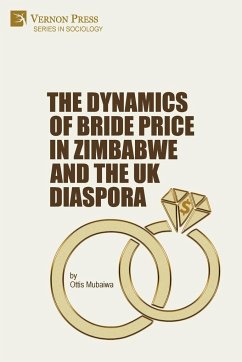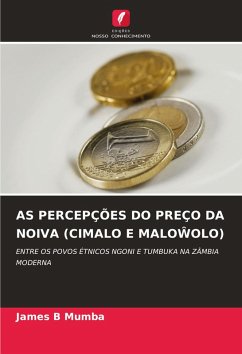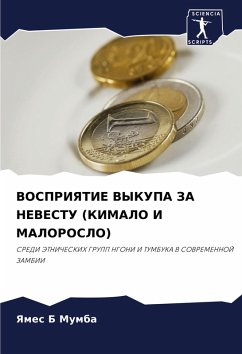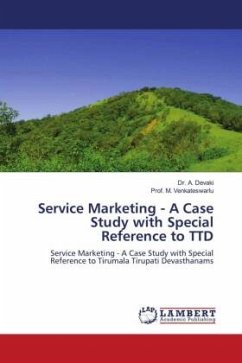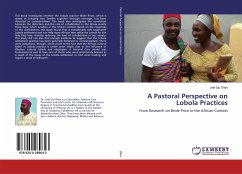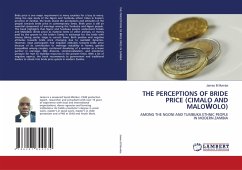
THE PERCEPTIONS OF BRIDE PRICE (CIMALO AND MALO¿OLO)
AMONG THE NGONI AND TUMBUKA ETHNIC PEOPLE IN MODERN ZAMBIA
Versandkostenfrei!
Versandfertig in 6-10 Tagen
60,99 €
inkl. MwSt.

PAYBACK Punkte
30 °P sammeln!
Bride price is one major requirement in many societies for a boy to marry. Using the case study of the Ngoni and Tumbuka ethnic tribes in Eastern province of Zambia, the book shares the perceptions and attitudes of the people towards bride price in contemporary times. Bride price is still an essential component of marriage among the Tumbuka and Ngoni people. The book highlights that Ngoni and Tumbuka people understand Cimalo and Malo olo (bride price) as material items or other animals, or money paid by the groom to the bride's family in exchange for the bride with money taking center stage in...
Bride price is one major requirement in many societies for a boy to marry. Using the case study of the Ngoni and Tumbuka ethnic tribes in Eastern province of Zambia, the book shares the perceptions and attitudes of the people towards bride price in contemporary times. Bride price is still an essential component of marriage among the Tumbuka and Ngoni people. The book highlights that Ngoni and Tumbuka people understand Cimalo and Malo olo (bride price) as material items or other animals, or money paid by the groom to the bride's family in exchange for the bride with money taking center stage in current times. Both positive and negative attitudes towards bride price changing due to capitalist dynamics. However, most participants had negative attitudes towards bride price because of its contribution to marriage instability in homes, gender inequalities among couples, continued devaluing of a woman as a lesser partner in marriage, GBV, divorces, commercialization, and emotional pressure for men to mobilize resources in the present times. With a lot of negative aspects, the book recommends to government and traditional leaders to relook into bride price system in modern Zambia.






